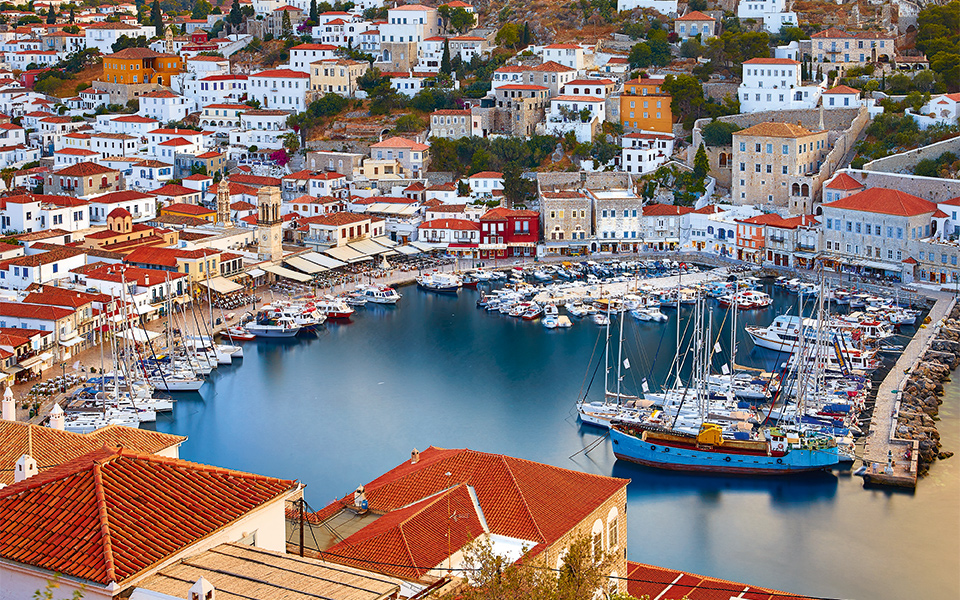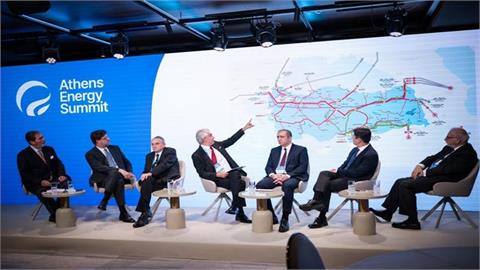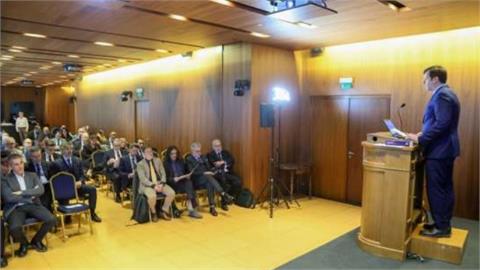Once again the Institute, actively participated in this year ‘s Hydra Shipping Conference which took place on September 16 on the island of Hydra in Greece and brought together some top paragons of Greek shipping
Once again the Institute, actively participated in this year ‘s Hydra Shipping Conference which took place on September 16 on the island of Hydra in Greece and brought together some top paragons of Greek shipping. The Institute was represented by its Chairman and Executive Director, Mr. Costis Stambolis who accepted an invitation by the chairman of the conference Mr. George Tsavliris. Other keynote speakers included Mr. George Pateras, the president of the Marine Chamber of Greece, Mr. John Platsidakis, former chairman of INTERCARGO, Prof. Dinos Arcoumanis, Panos Zachariadis, of Atlantic Bulk Carriers Management, Mr. Andreas Adrianopoulos a well-known energy and financial analyst and former Minister of Industry, Mr. Constantinos Petropoulos, head of Structured and Shipping Finance at Piraeus Bank, Mr. George Xiradakis, CEO of XRTC Business Consultants and others.
In his presentation the Chairman of IENE spoke on the “Outlook for Fossil Fuels and their Impact on Shipping” (the full presentation can be viewed here) and drew comparisons between consumption patterns over the last 50 years or so. He also looked at various scenarios of anticipated fossil fuel demand over the next 25 years and he wondered if «peak oil» is anywhere near as it is usually predicted by some international organizations. “Over the last 20 years or so, since Climate Change started to determine energy policies, the IEA and other organizations speculated as to when peak oil could be achieved setting one target after the other. First it was 2020, then it was 2025, 2028, 2030 and so forth. Such arbitrary targets systematically underestimated the developing world’s insatiable thirst for oil and gas as they are still (together with coal) the cheapest and most easily available forms of energy to satisfy rising energy needs. With RES contributing more energy but which is channeled almost exclusively for power generation. Latest findings as reported by the IEA in its forthcoming flagship report, World Energy Outlook 2023, show that peak oil may not actually be reached before 2040 by which time production is expected to plateau”
The chairman of IENE also underlined that, “efforts by governments and international organizations to fast-track energy transition by imposing emission inspired change of fuel in industries, transportation, buildings and shipping have not been successful in curtailing demand for oil, gas and coal. On the contrary, we see a rise in demand. Peak oil demand is now forecasted beyond 2040 while gas demand may not climax until a little later, and so we can take a breath.” “It safe to assume that beyond 2050 the global energy mix will shift towards greater electricity input. This means that over the 20-25 years we shall need more vessel capacity to transport energy related commodities. That means more oil tankers and a lot more LNG and special cargo vessels.”
Hence, Greek shipowners are well placed, noted Stambolis in his concluding remarks, “to take advantage of the new global energy and environmental order. By constantly modernising their fleets and showcasing responsible ship management (by expertly managing HR and environmental issues) and versatility in operations Greek shipowners will continue to compete successfully in a most challenging global environment.”




